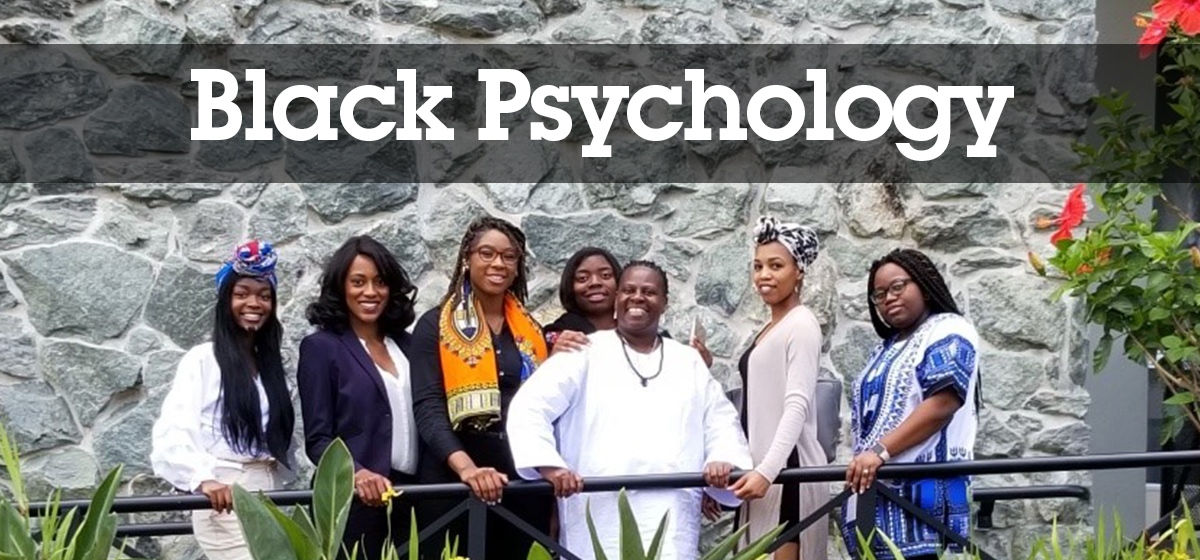The student group Leaders and Advocates in Black Psychology (LABPsi) was formed after many black graduate students in the MS Clinical Psychology Program expressed a desire to learn more about black cultural and spiritual practices that could inform their work as mental health professionals. It now includes undergraduate students. The purpose of this organization is to become informed and to inform others about historical and contemporary issues facing blacks in the Diaspora. Students utilize an African-centered paradigm to conduct research and create social justice activities to answer questions about how privilege, power, and international politics may contribute to prejudice, discrimination, and inequity. The goal is to empower blacks in the Diaspora and to engage students in culturally sensitive practices to prepare them to be healthy, thoughtful, and contributing citizens of the world.
The students asked Dr. Pamela D. Hall to be their faculty sponsor. Dr. Hall is a social psychologist and change agent whose life’s work is dedicated to multiculturalism, community engagement, social justice, and grass root activism. She is interested in identifying and eliminating the bias and prejudice against individuals from oppressed and marginalized groups, particularly racial and ethnic minorities. Her social activism is merged with her scholarly work. She is a member of the Association of Black Psychology. She is also a member and facilitator of the South Florida People of Color (SFPoC), a group whose mission is to promote inter-racial understanding and facilitate racial healing.
In her classes, she has introduced students to prominent black psychologists and their contributions to the field. She teaches an undergraduate course in black psychology and a graduate course in social and multicultural foundations of practice. Dr. Hall partnered with SFPoC to host an “Awkward Dinner” for her graduate students to discuss issues of race that are often ignored. She and the students of LABPsi are working to create a holistic understanding of blackness. They co-sponsored an event with SFPoC titled “What is black?” She was the guest speaker at the Annual Psychology Student Research Forum where she gave a presentation titled “Black is not a skin color, it is a spiritual phenomenon.” Dr. Hall’s trip to Ghana in 2017 was spiritually and academically inspiring. Dr. Hall, the granddaughter of a slave, writes:
When I went into the Elmina Slave Dungeon in Ghana, West Africa, and I looked out of the Door of No Return, my soul reverberated. The Door of No Return is the door my ancestors passed through before they were placed on vessels to be sent to the Caribbean, the Americas, and Brazil. They never returned home to Africa. It was at that moment I realized that the transatlantic slave trade is why blacks are splintered all over the world and do not recognize their connection to the motherland, “Africa” let alone to one another. Many blacks also do not realize that this separation caused many Blacks in the Diaspora to lose their spiritual essence. I proclaim that one’s skin color is not enough to make them black, the practice of spiritual principles and customs is what contributes to blackness. That is why I am concentrating a significant aspect of my teaching, research, and service to studying blackness.”

